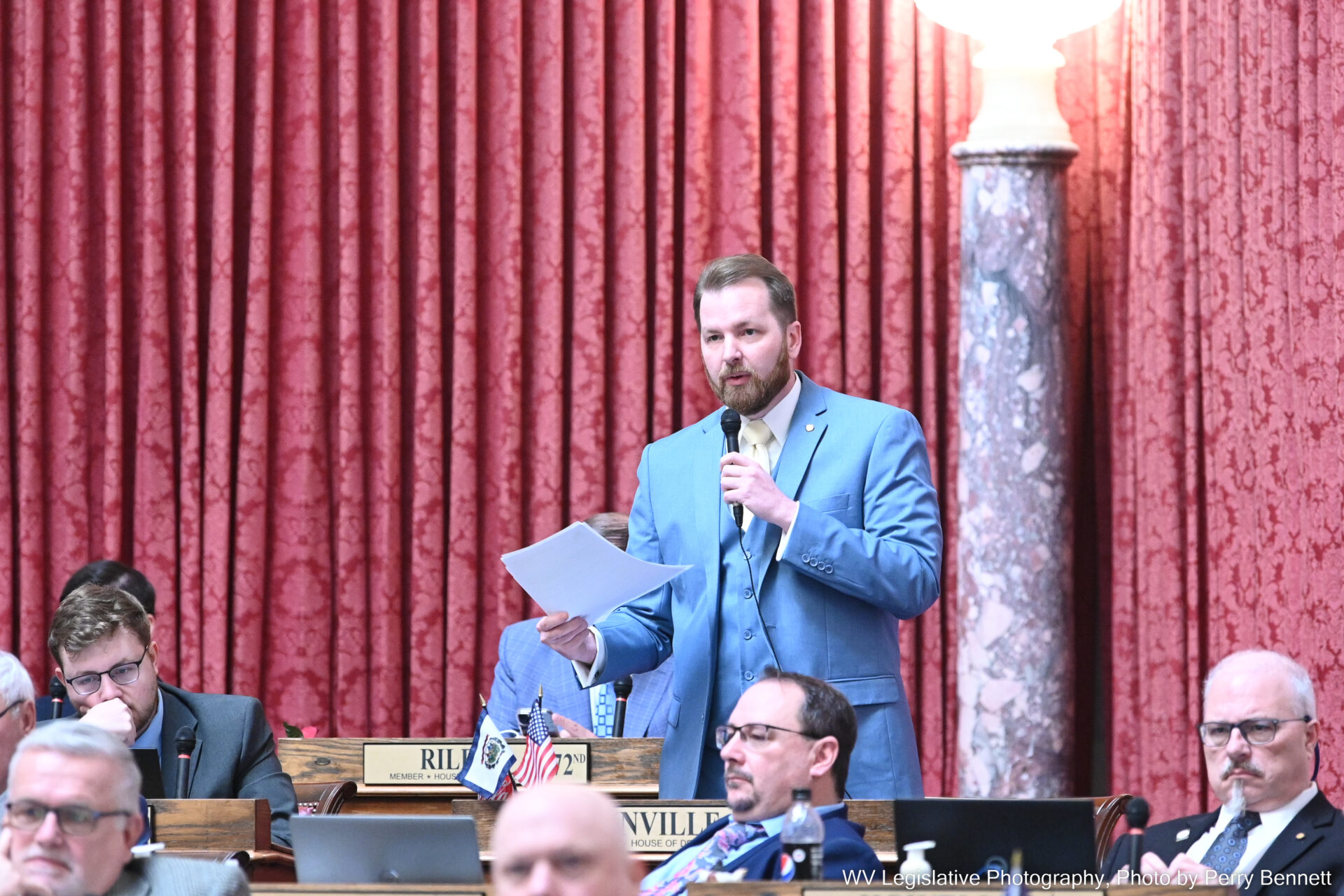West Virginia’s historic rehabilitation tax credit was put in place to encourage developers and property owners to take some of the state’s crumbling, historic structures and get them back into working order. The credit is also supposed to encourage the creation of local jobs while repurposing the underutilized buildings.
But the state’s tax credit is 10 percent, and a coalition of architects, economic developers, and others say that’s not enough to encourage the community development they’d like to see. That same group is now traveling the state looking for support as they prepare to ask state lawmakers to increase the tax credit.
Here at the old Shenandoah Hotel, which first opened in downtown Martinsburg in 1926, a group of community members – interested residents, city and county officials, and some state lawmakers from the area have gathered to hear about the potential benefits of increasing West Virginia’s historic rehabilitation tax credit.
The credit provides a 10 percent dollar-for-dollar reduction in income tax liability for renovation projects on buildings registered with the National Register of Historic Places. The owner is then responsible for the rest of the project costs.
That’s Lisa Dall’Olio. She’s an architect with Grove & Dall’Olio Architects based out of Gerrardstown in Berkeley County and she spoke at the Abandoned Properties Coalition sponsored forum.
Dall’Olio says an increase to the credit could mean an increase in the number of tourists who visit the state, looking for charm inherent in old buildings. But it could also mean an increase in state and local tax revenues.
“This is a perfect example of how tax credits, an increased tax credits could make somebody jump and do this project,” she said.
Dall’Olio and the Abandoned Properties Coalition would like to see state lawmakers bump the credit from 10 to 25 percent during the upcoming session to match neighboring states.
Nicole Marrocco is the Abandoned Properties Coalition coordinator for the West Virginia Community Development Hub.
“We’re in the Eastern Panhandle; we’re wedged between Maryland and Virginia, which are two states that have a higher tax credit, so we have the 20 percent tax credit in Maryland, the 25 percent tax credit in Virginia, and both states are seeing more development than we are here in the Eastern Panhandle,” Marrocco explained.
The National Trust for Historic Preservation tracked state tax dollars brought in by a similar federal tax credit between 2002 and 2015. Tax revenues in Virginia, where the state tax credit is 25 percent, were significantly higher during that time than in West Virginia—some $103 million compared to West Virginia’s $5 million. While those numbers are based on the study of a federal credit’s impact, Marrocco believes the state tax credit played a part in those revenues too. And West Virginia could see more money flowing into its coffers if lawmakers increased the rate.
Berkeley County Delegate Saira Blair attended the forum and says she sees it’s potential.
“It’s gonna be something that’s put on the table, I can guarantee that,” Blair said, “I don’t know if it’ll go through this year, because we’re looking at thousands of other things; our Finance committee is gonna be swamped, but one more thing to put out there is great for our state.”
Newly elected Senator Patricia Rucker, a Republican from Jefferson County, says she’s excited about the prospect of what increasing the historic tax credit could do for the state.
“We have historic areas all over the state, and actually, there are parts of our state which are so beautiful, people don’t even know,” she noted, “It’d be wonderful to increase our tourism dollars by letting this revitalization help all the areas of the state.”
Rucker says she would back legislation increasing the tax credit if it came before the legislature.
Abandoned Properties Coalition Meetings:
Wheeling
Wednesday, January 25, 8:30 – 10:30 a.m.
The Stone Center
REGISTER
Fairmont
Thursday, January 26, 1 – 3 p.m.
The Gatherings
REGISTER
Huntington
Wednesday, February 1, 4 – 6 p.m.
The Keith-Albee Theatre
REGISTER
Charleston
Thursday, February 2, 5 – 7 p.m.
The Art Store
REGISTER
